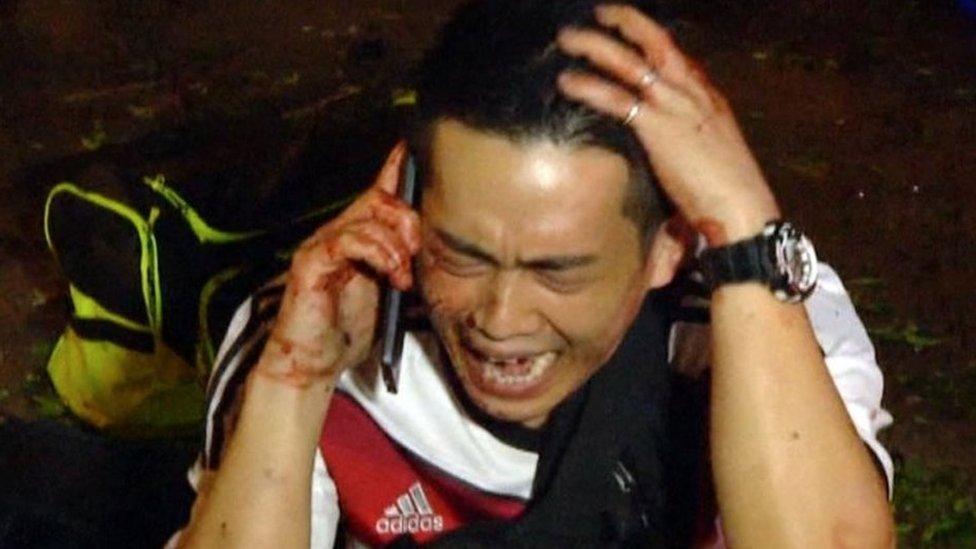Bangkok Erawan shrine bomb: Uighur suspects plead not guilty
- Published
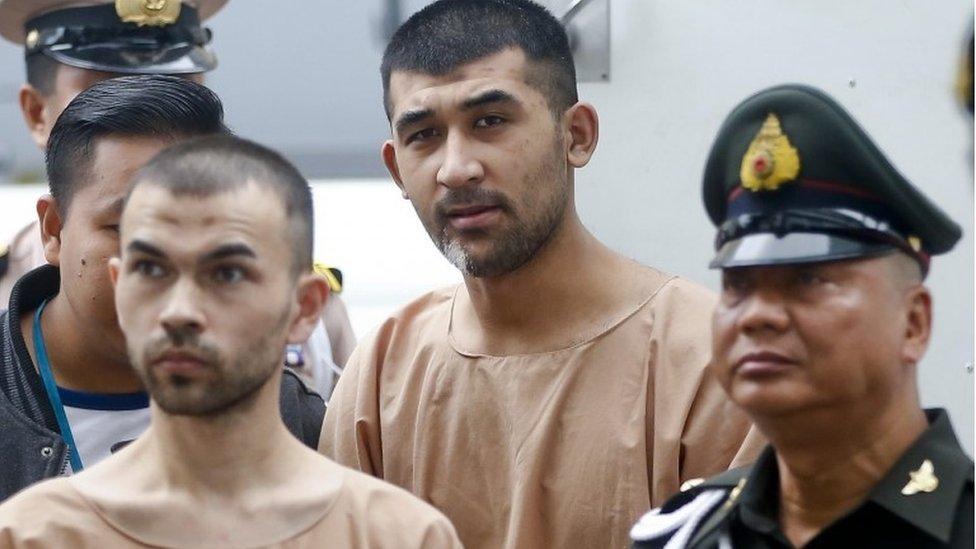
The men say they were coerced into confessing
Two ethnic Uighur Chinese men have pleaded not guilty of involvement in the bombing of a shrine in Bangkok, in their first court appearance.
Twenty people were killed when the bomb hit the Erawan shrine in the centre of the Thai capital on 17 August.
Yusufu Mieraili and Adem Karadag, also known as Bilal Mohammed, face charges of murder and possessing explosives.
No group has ever admitted being behind the bombing, which also injured scores of people.
Police say the men, both from the Xinjiang region of China, initially admitted carrying out the attack.
Mr Karadag is accused of placing the bomb inside the Hindu shrine in a backpack.
But his lawyer has alleged his client was tortured into confessing and is innocent of all charges except one of entering the country illegally.
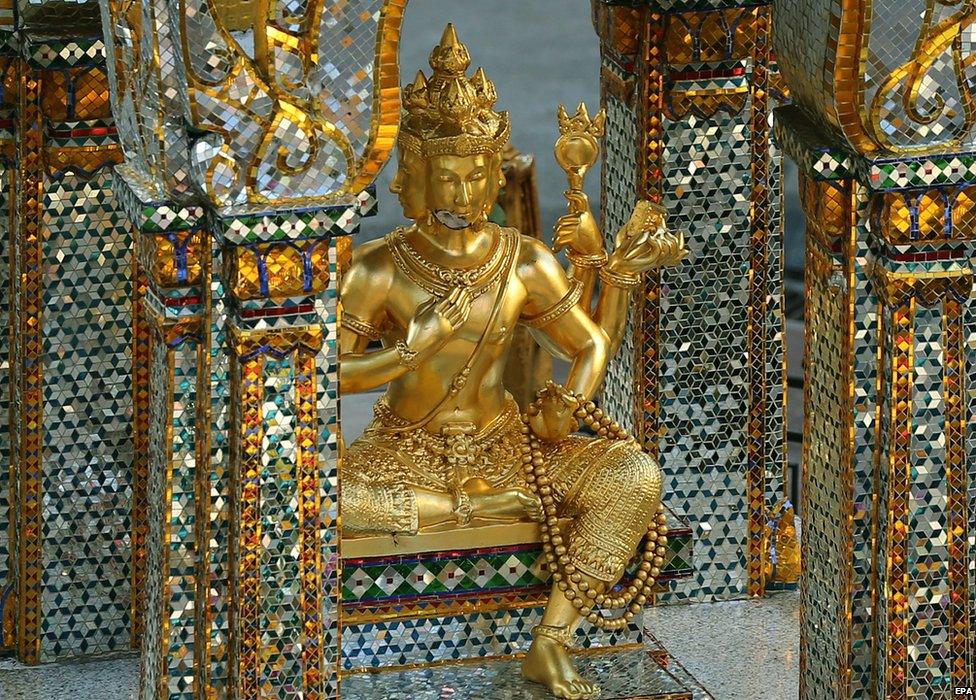
The Hindu shrine, with its four-face statue of the god Brahma, is also sacred to Thai Buddhists
Prosecutors say Mr Mieraili delivered the backpack containing the bomb to another man.
On arriving at court, he said he was "an innocent Muslim" who had already been detained for six months.
Both men arrived at court shackled and with bare feet.
Police chief Chakthip Chaijinda said the men had a right to retract their confession, but "we have witnesses and clear evidence to prosecute them", AFP reports.
The Thai military government says it suspects a people-smuggling gang angered by a crackdown on its activities carried out the attack.
But many observers believe the attack was in fact carried out in retaliation for the forced repatriation from Thailand last July of more than 100 Uighur asylum seekers back to China.
Fifteen suspects for whom the police issued arrest warrants are still at large.
- Published5 October 2015
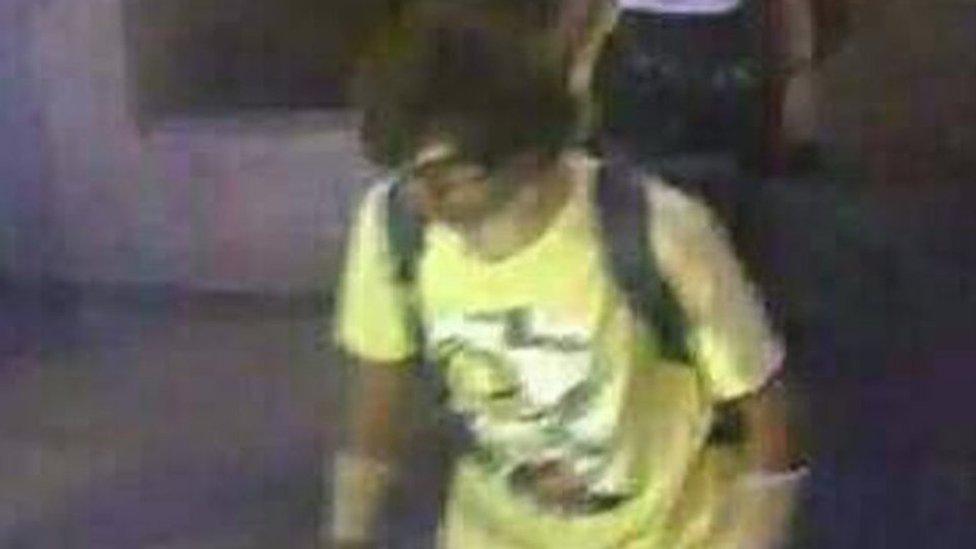
- Published20 August 2015
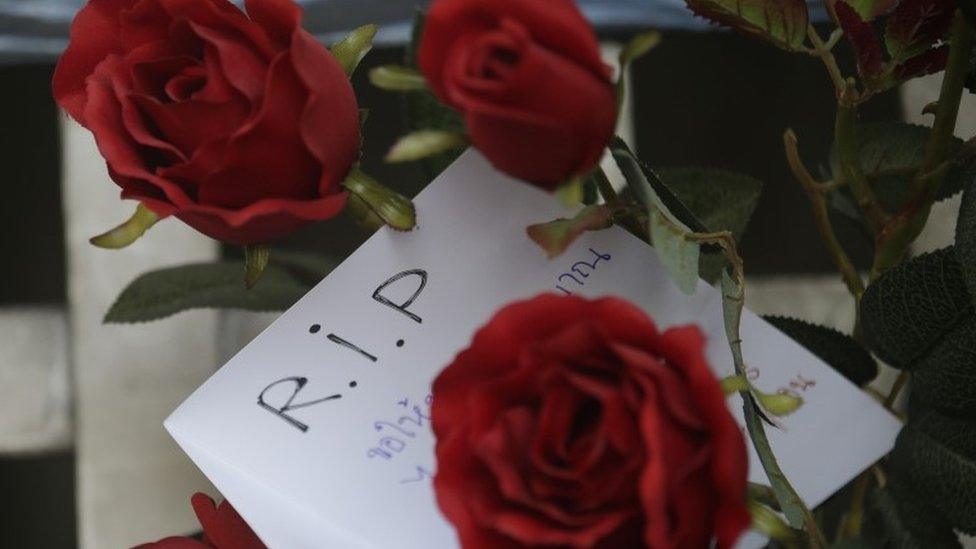
- Published19 August 2015
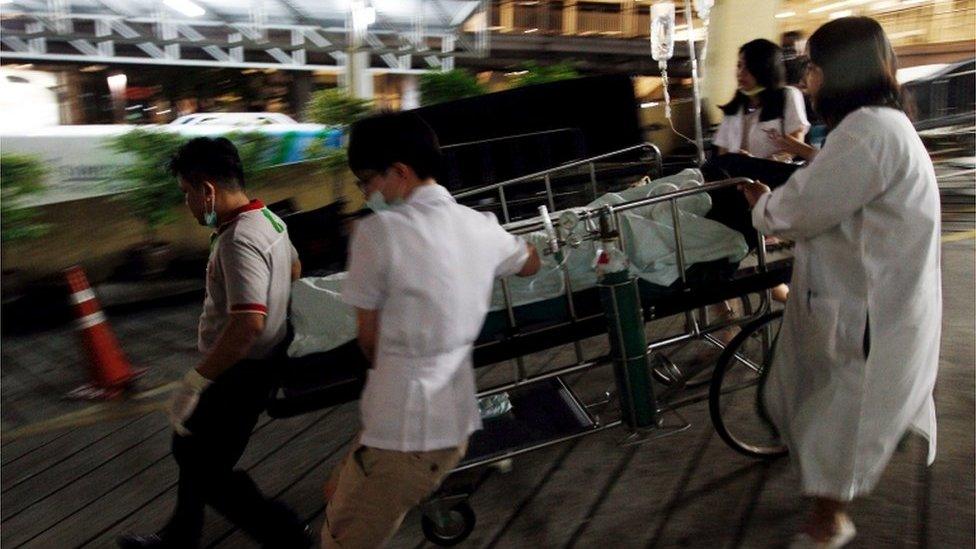
- Published18 August 2015
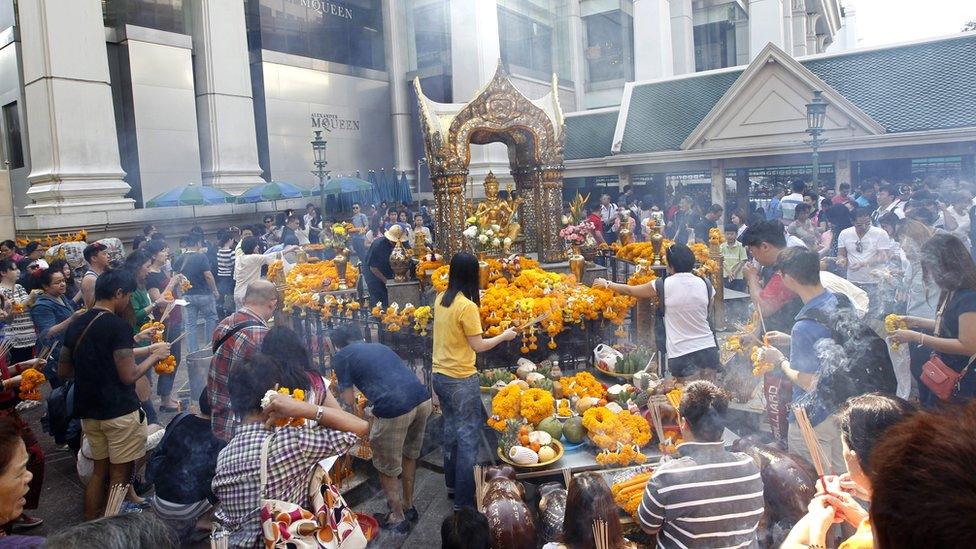
- Published18 August 2015
